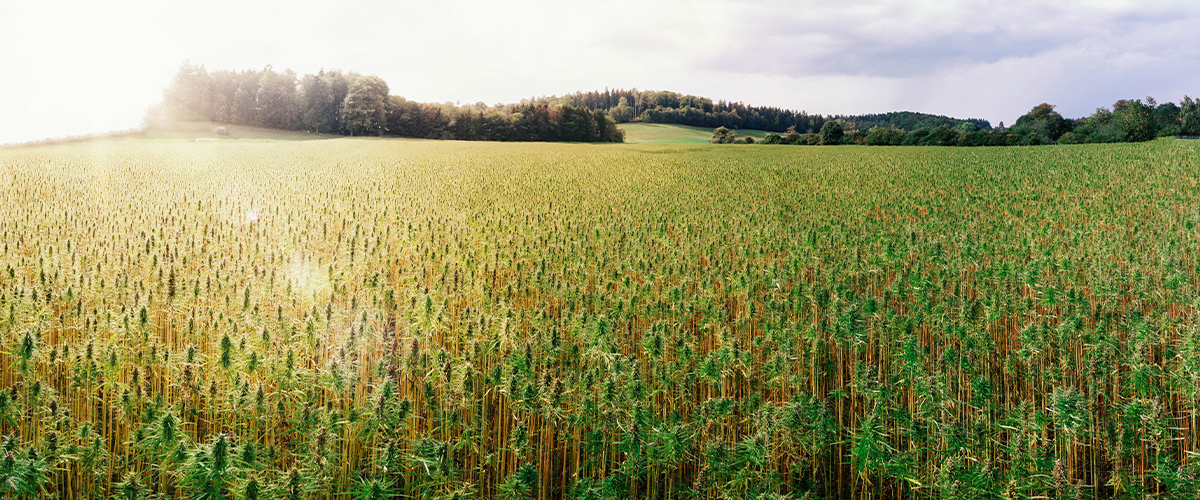Gov. Tony Evers has signed a law establishing Wisconsin’s hemp farming program as a permanent fixture.
Farmers in America’s Dairyland could be making a comeback with the help of hemp. On Nov. 26, Wisconsin Gov. Tony Evers signed into law Senate Bill 188, also known as the “Growing Opportunities Act.”
“I was proud to sign this collaborative, bipartisan bill into law today to ensure the continued success of our hemp program and the many new opportunities hemp provides to Wisconsin farmers,” Evers stated in a press release.
Wisconsin began its two-year hemp pilot program in 2017 after the cultivation of hemp for research and pilot program purposes was made federally legal by the 2014 Farm Bill. The passage of the 2018 Farm Bill last December legalized the production of hemp for commercial purposes.
Evers said the program’s success is indicated by the sharp increase in support for what many are calling Wisconsin’s “comeback crop.”
“From textiles, to recycling and bioplastics, to industrial materials, hemp provides endless opportunities to Wisconsin farmers who are looking for new markets to enter, which is why interest in growing and producing hemp in Wisconsin has skyrocketed in the last year,” Evers stated.
The bipartisan bill aligns Wisconsin’s hemp laws with those of the federal government and places regulatory authority under the Wisconsin Department of Agriculture, Trade, and Consumer Protection (DATCP).
According to AP News, in the first year of Wisconsin’s hemp pilot program in 2018 the state used about 250 licenses to grow the crop. In 2019, that numbered jumped to 1,247 hemp growers and 556 hemp processors licensed and registered with the state’s DATCP.
The Growing Opportunities Act also:
- Changes state law to permit a tetrahydrocannabinol (THC) concentration of up to .03% in the bloodstream.
- Prohibits a person from producing hemp for 10 years following any felony conviction relating to a federally or state-controlled substance.
- Establishes a truth-in-labeling requirement for hemp, prohibiting people from intentionally mislabeling hemp products by making an inaccurate claim about the content, THC concentration, quality, or origin of hemp.
- Modifies the definition of “hemp” in state law to match federal law.
More on Hemp
Hemp is a member of the cannabis plant species and contains less than 0.3 percent of tetrahydrocannabinol (THC). Due to the low levels of THC, the intoxicating element of cannabis, hemp does not provide that euphoric high feeling. The plant has a long history in America and is used to produce thousands of products, including cannabidiol (CBD) oil.
According to the 2018 Farm Bill, hemp is defined as an agricultural commodity and the development of its regulation falls under the United States Department of Agriculture (USDA).
In late October, the USDA released its initial guidelines on hemp regulation. The hemp regulations published by USDA encompass growing standards, testing rules for THC, and the disposal process for crops that are not up to their standards.
The long-awaited release of interim hemp regulations also came with an invitation for public comment. The USDA’s public comment website is open until Dec. 30. Those interested in submitting feedback can do so, here.
Cannabis News and Updates
Wisconsin has a very restrictive medical marijuana program that allows limited patients access to cannabis oil low in THC. In September, lawmakers introduced a bill to expand the state’s medical marijuana program and allow cannabis with higher levels of THC. Recreational cannabis is illegal in the state.
Read more about Wisconsin’s cannabis laws, or find more articles on the latest developments in cannabis policy, business, and scientific research by visiting our news page.






